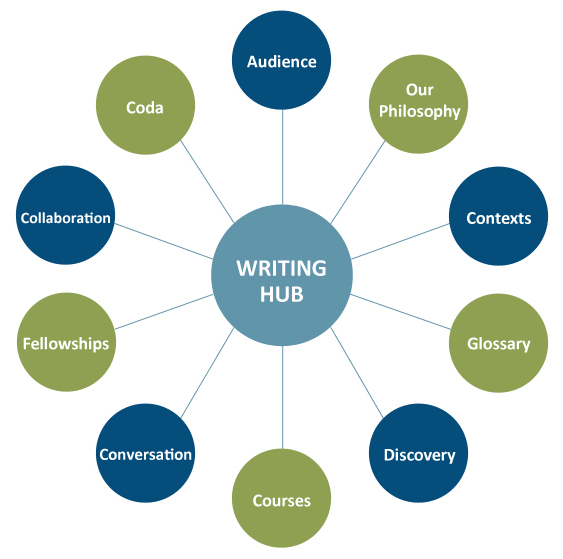COLLABORATION
Preliminary data from our ongoing four-year longitudinal study of student writing (designed to track transitions at various stages of students' writing development) suggests a glaring disconnect between the hallmark of university assessment, the sole-authored long essay, and the prevalence of collaborative, multimodal writing in the workplace.
Generally, we find students unprepared for university writing after high school, and unprepared for workplace writing after university. As part of the study, we conducted interviews with actual employers of Sydney University graduates on how new employees adapt to workplace writing situations. As one potential employer put it, “[New graduates] can’t write collaboratively. Sure, they can churn out 5000-word essays, but when asked to collaborate on a brief, they struggle. They expect us to tell them what to do, when they should have the abilities to anticipate what is needed.” We also conducted surveys and focus groups of first-year students on their expectation of university writing—and whether high school writing instruction had prepared them adequately for this transition. In some cases, students had had no formal academic writing instruction at all, though they were assessed primarily through essays in their last years of high school. We have collected additional data through the feedback forms students are required to complete when visiting the Writing Hub for drop-in peer writing assistance.
The Writing Hub models collaboration through team teaching across all of our courses and holding collaborative writing and editing sessions for students either in class or in supplementary sessions outside of class. We regularly write together, and, whenever possible, include students on these collaborations. One of our favorite teaching props is an article draft featuring track changes, comments in different handwriting, and emails offering constructive criticism and alternative formats. We begin by presenting the finished product to the students for comments, which invariably include, “I can’t write like that,” to which we reply, “Neither could we by ourselves.”
Our collective academic expertise covers a range of disciplinary areas and cultural contexts. Dr. Susan Thomas is a dual citizen of Australia and the US and has a PhD in English with a concentration in rhetoric and composition and a secondary area in professional writing from Georgia State University. Ms. Angela Shetler has a BA in Professional Writing from Michigan State University and an MA in Digital Communication and Culture from the University of Sydney. She is an American who worked in Japan for three years as an ESL teacher and has applied that expertise to the design and implementation of WRIT1000. Dr. Frances Di Lauro, an Italian-Australian, earned her PhD in Religious Studies at the University of Sydney and applies that expertise to cross-cultural rhetorical studies. Dr. Benjamin Miller, an Australian citizen, has a PhD in Australian Literature from the University of New South Wales and has focused on indigenous history, culture, and rhetoric.
The Hub has also benefited from teaching and research collaborations with academics in the departments of English, linguistics, philosophy, anthropology, religious studies, media and communications, and performance studies. We recently held a roundtable discussion on critical thinking and writing in WRIT1002 with Professor Rick Benitez from the Philosophy Department to demonstrate how collaboration and conversation contribute to better writing. Many students responded that the session helped them understand elements of writing that had been unclear in class and to put the pieces of the puzzle together by seeing real people discuss real issues in real time.

